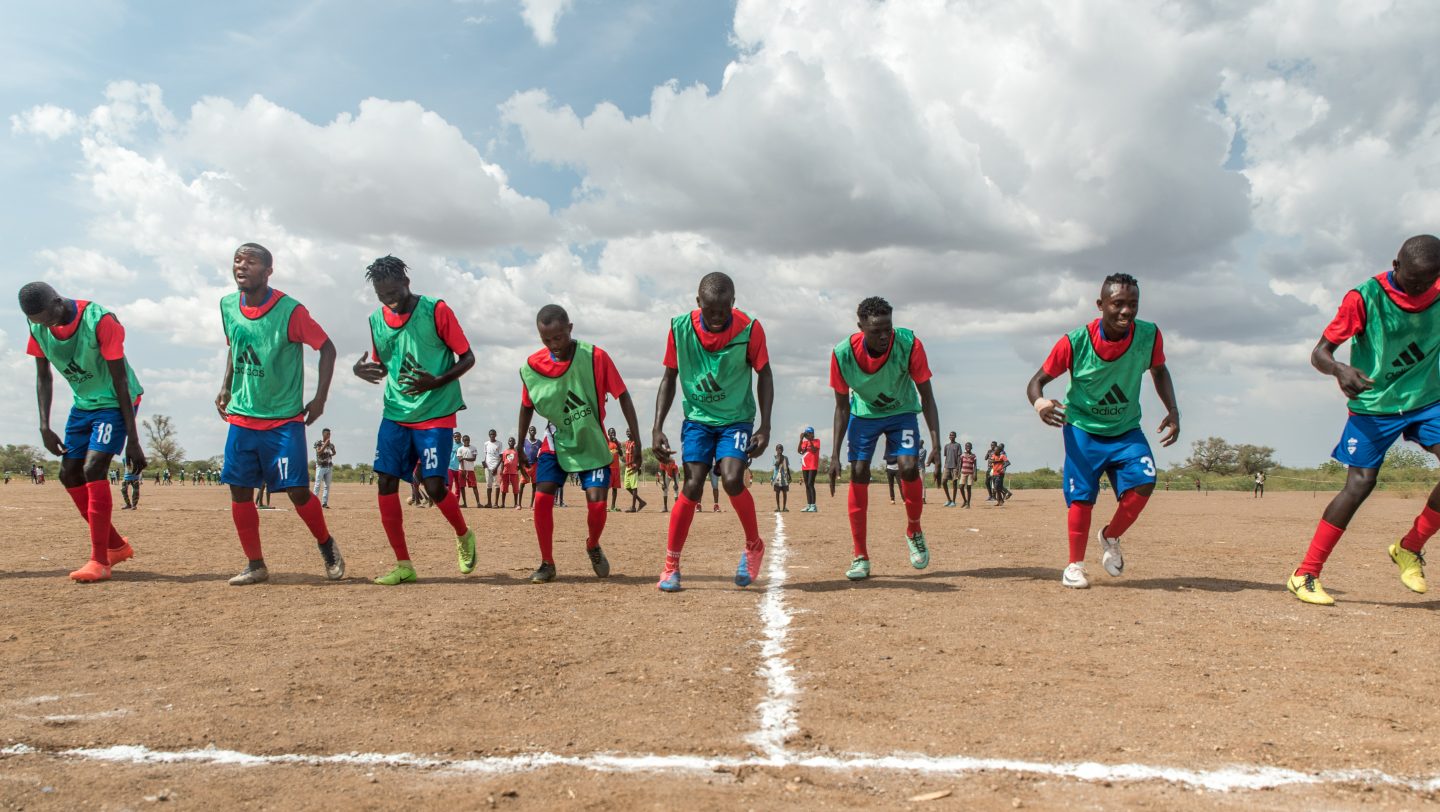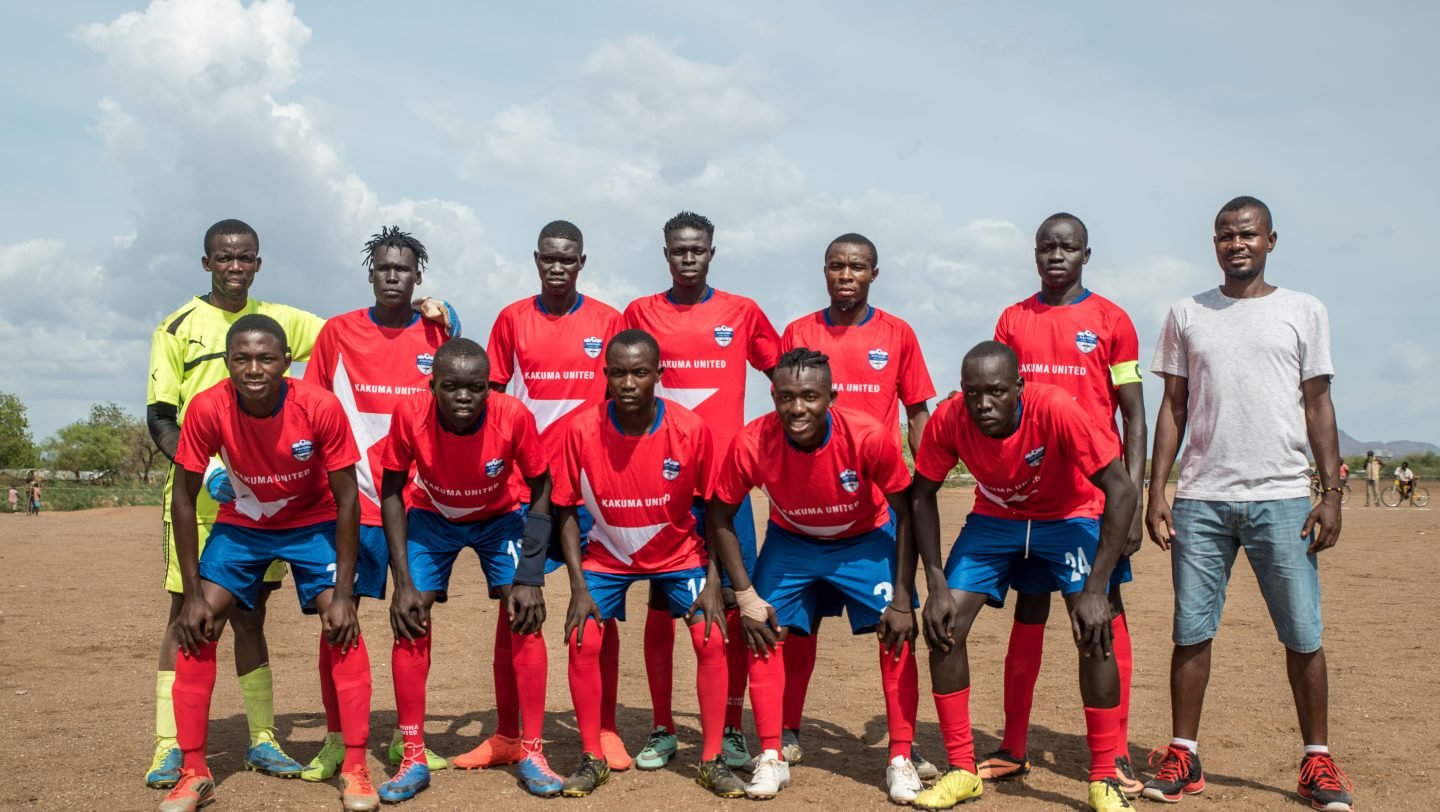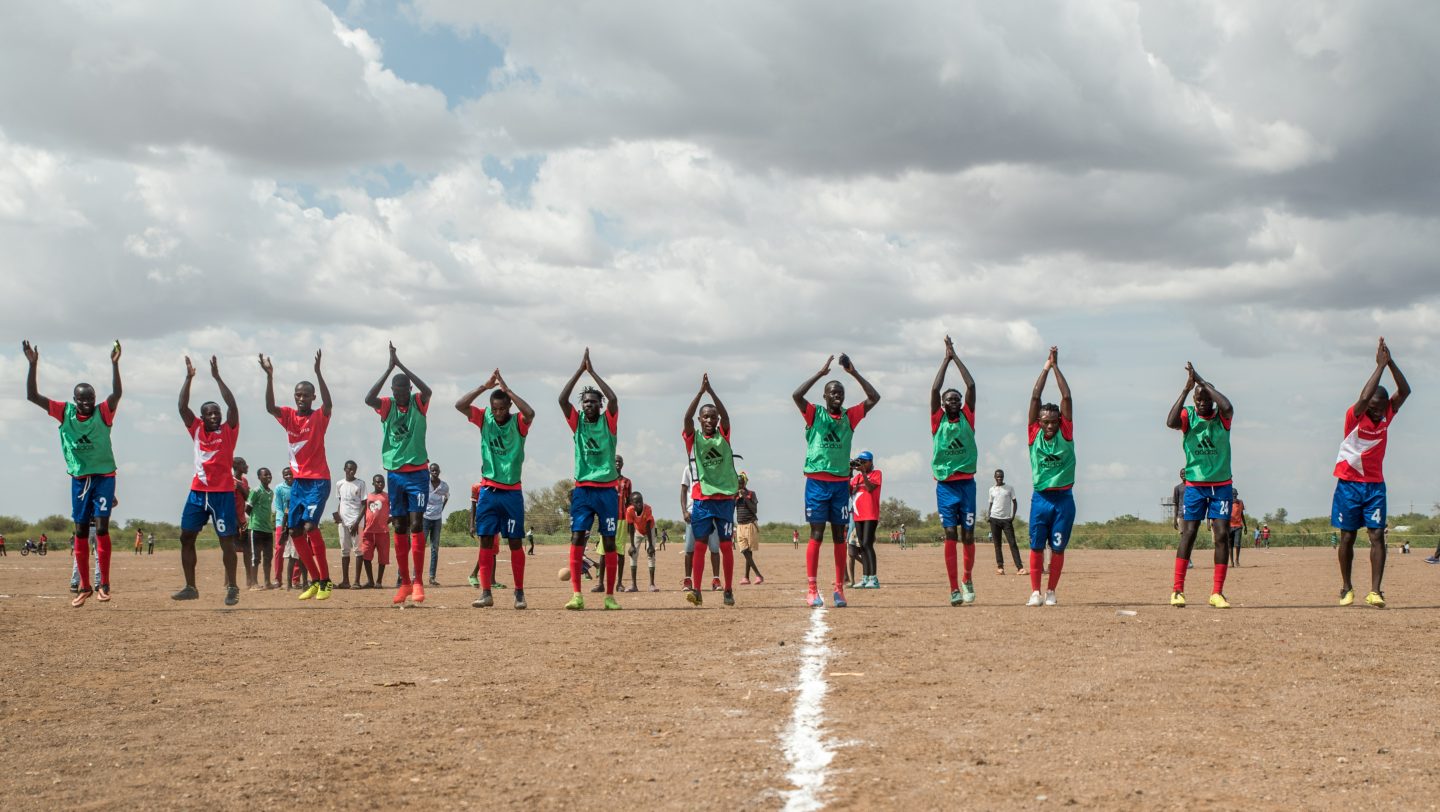Football: A unifying diversity in Kakuma Refugee Camp
It is this love of football and the team’s excellent sportsmanship that has seen the first refugee team ever, play in the Kenyan National Football League
Kakuma United is uniquely composed of players from seven different nationalities, drawn from the refugee camp, the nearby Kalobeyei settlement and Kenyans from the local hosting community. ©UNHCR/Samuel Otieno
Crowds gather at a dusty field, chanting loudly as their favourite football team, decked out in red and blue jerseys troop into the uneven field. This is one of the few home matches that has drawn out thousands of ardent supporters of the Kakuma United Football Club in Kakuma camp in north-western Kenya.
Both Gal, 24, leads the players confidently into the field. The armband on his shirt confirms that he is the captain of the team – a title the South-Sudanese refugee is proud to own.
“We come from different nationalities and have different beliefs and cultural identities,” says Gal. “But we all have one thing in common – a firm love for football.”
The team’s diversity has helped the players forge a close bond and friendship that extends outside the football pitch.
It is this love of football and the team’s excellent sportsmanship that has seen the first refugee team ever, play in the Kenyan National Football League. The match they are about to play is against Nawoitorong – a Kenyan team from Lodwar town, about 120 Kilometres from Kakuma.
Kakuma United is uniquely composed of players from seven different nationalities, drawn from the refugee camp, the nearby Kalobeyei settlement and Kenyans from the local hosting community.
“We all love football. It is the only thing that brings us together and that is why we came together to build this team,” adds Gal.
Gal arrived in Kakuma at the age of 10, after fleeing the conflict in South Sudan. Too young to comprehend the violence that had forced him to flee, he relied on stories that his mother and older siblings told of the events that led to their flight.
He has grown to appreciate the camp as home and a place of opportunity. Kakuma and Kalobeyei settlement has a combined population of more than 187,000 with the youth making up over 60 per cent of the population.
“Kakuma is home simply because you can move freely, you can express yourself and best of all, you can play football” says Gal who started playing football in the camp when he was only 14.
Last year, UNHCR, the UN Refugee Agency and the Lutheran World Federation (LWF) which implements youth activities in Kakuma, spearheaded the registration of Kakuma United into the National League in Division 2 – Western League.
“Kakuma is home simply because you can move freely, you can express yourself and best of all, you can play football”
Over 40 referees and coaches from Kakuma and Kalobeyei were also trained and certified by the Kenya Football Federation which manages football in the country, with the aim of ensuring professionalism in the game.
Sixteen teams playing in the Kakuma Premier League and 10 female football teams playing in the ‘Divas League’ have also been registered and are recognized as teams playing in the Sub-County League.
“Football is a favourite sport among many refugees and Kenyan youth. But in Kakuma, football goes beyond sportsmanship – it has become a symbol of unity, peace and love for refugees and the host community,” says Tayyar Sukru Cansizoglu, UNHCR’s Head of Sub Office in Kakuma.
Nicholas Loolio Lokwang’ is a midfielder and one of the Kenyan members of the team. The 22-year-old from the local Turkana host community discovered his love for the game when he was nine. He learnt most of his skills through practice and playing with other refugees in the camp and is passionate about his team.
“I have faith in my captain, and I love playing with different nationalities as football knows no tribe,” says Loolio.
Kakuma United has a diverse fan base that includes women. Jojete Kibibi is among thousands of refugees who have turned up to watch the match. She has walked for nearly 10 kilometres in the searing heat to cheer her favourite team and son, Molai, who plays for Kakuma United.
I have faith in my captain, and I love playing with different nationalities as football knows no tribe
She not only loves the game but was an ardent player herself when she was younger. “I have trained my three sons to play football from a young age and my prayer has always been that one of them will become a renowned footballer,” she says.
Playing for Kakuma United is a great start for Molai as the team has displayed excellent performance in the Division 2 Western league. They emerged as the best team in the league and only lost one match to a Kenyan team in December 2018.
The team’s spirit has remained high as they aim to transit to Division One in 2020.
“Regardless of Kakuma’s harsh environment, the team brings excellence in whatever situation they are in,” says Sukru.
Share on Facebook Share on Twitter



